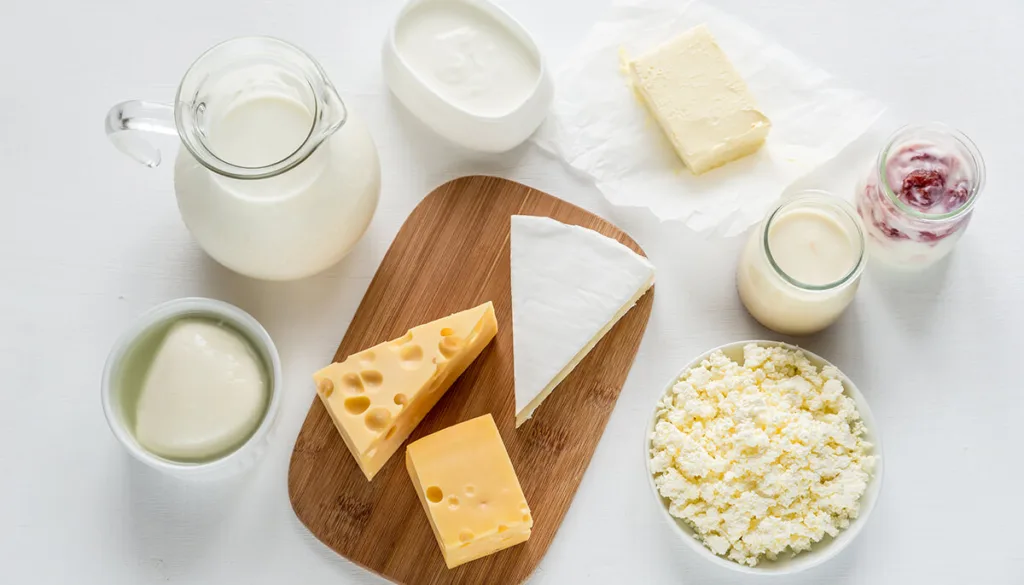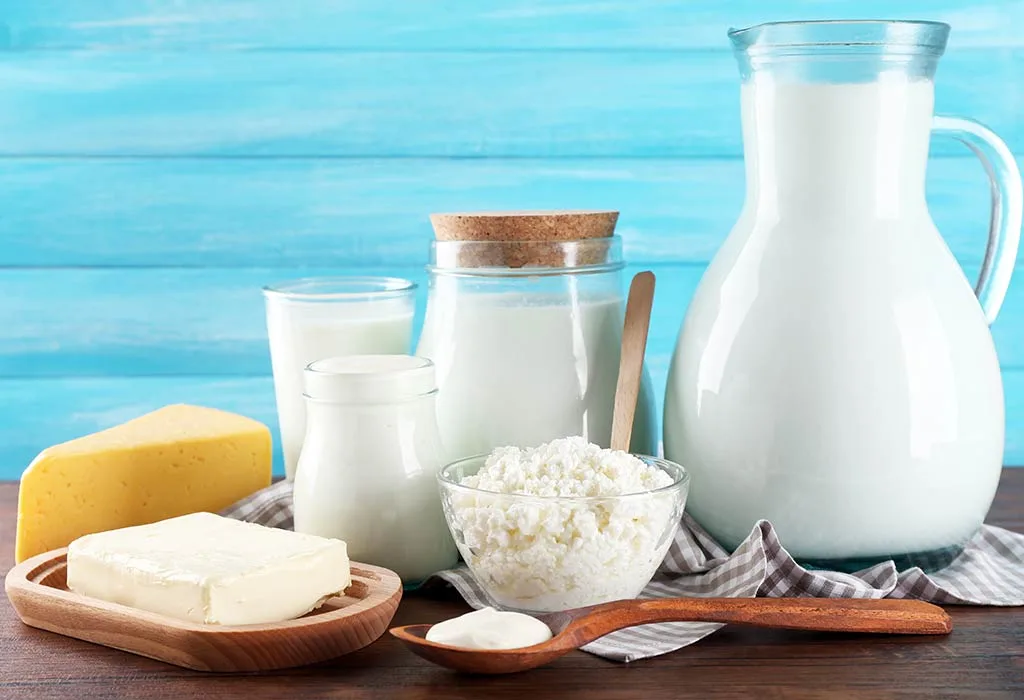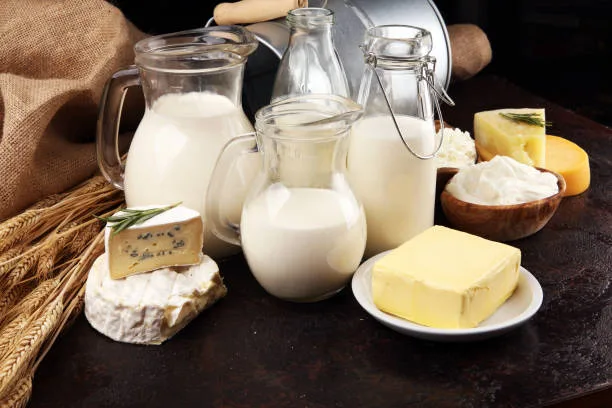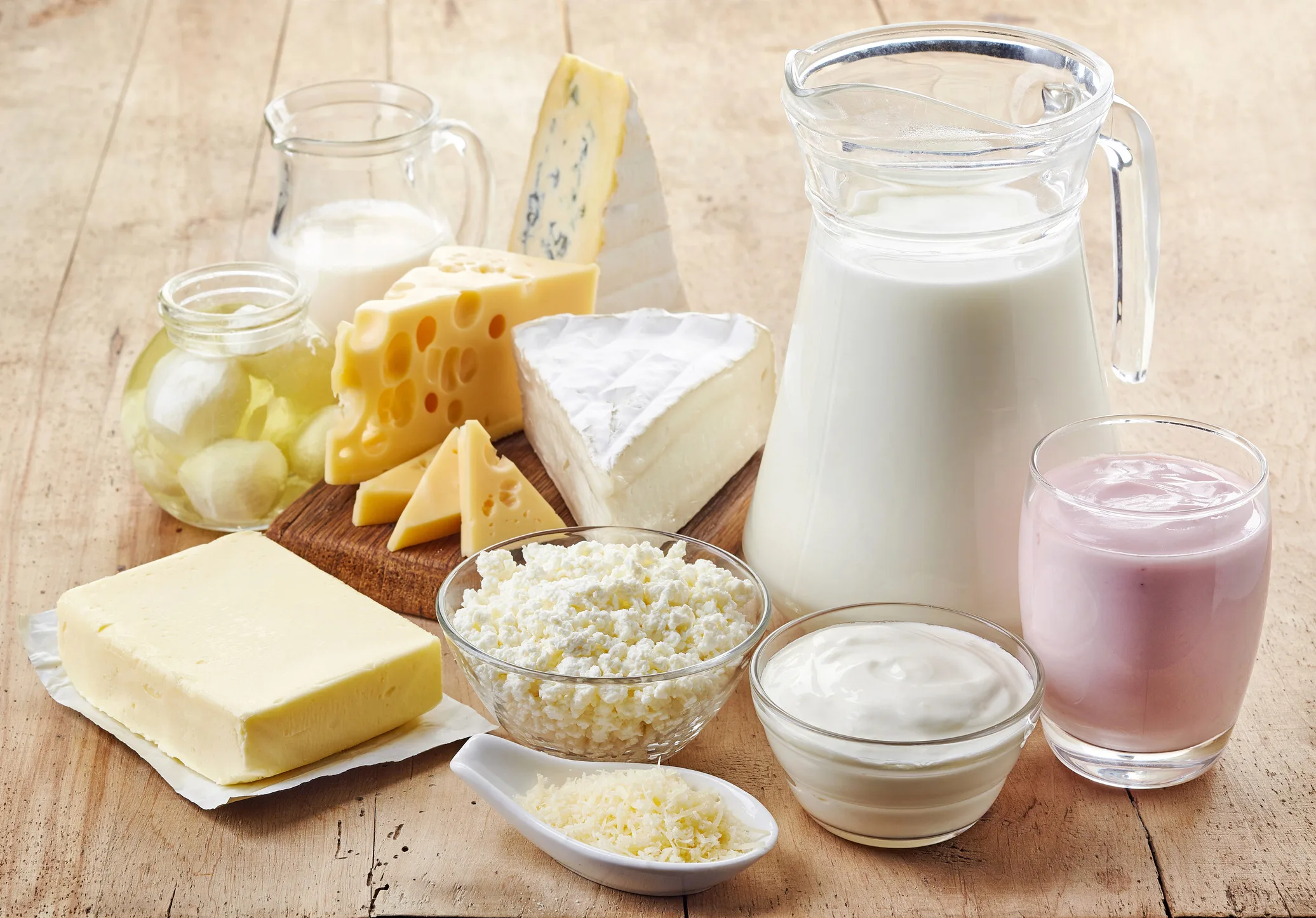Eating well is one of the most important parts of any weight loss journey. While exercise and lifestyle factors play key roles, nutrition provides the foundation. Understanding which foods can support your health and fitness goals is crucial for long-term success. One food group that often gets misunderstood is dairy. Milk, yogurt, cheese and other dairy products contain a powerful package of nutrients that can aid weight management in multiple ways. Let’s explore the science-backed benefits of dairy for weight loss and bust some common myths.

The Weight-Loss Potential of Dairy Products
To understand dairy’s weight loss benefits, we first need to look at what these products contain. The key nutrients and compounds that impact body weight include:
Calcium and Its Impact on Weight Loss
Calcium is a mineral present in substantial amounts in dairy foods. Research has uncovered a connection between calcium intake and body fat levels. Studies show that increased dietary calcium promotes fat breakdown and inhibits fat production and absorption (1). Population studies have found that those with higher calcium intakes tend to have lower body weights and less abdominal fat than those consuming less calcium (2).
Experts believe calcium’s weight loss effects may be due to several mechanisms. Calcium can bind to fat in the digestive tract, preventing some absorption of fat. It also impacts our hormone levels, decreasing circulating levels of calcitriol which is implicated in fat production. Higher calcium intake may also modestly boost thermogenesis, or fat burning. The end result is dairy’s potential to aid fat loss over time.
Protein: A Satiety Powerhouse
Dairy products like milk, Greek yogurt and cheese are excellent sources of high-quality protein. Having sufficient protein in your diet promotes satiety, which helps curb overeating. Research shows that high protein foods increase fullness hormones and reduce hunger hormones more effectively than carbohydrates or fats (3). This leads to greater satisfaction after eating, preventing excessive calorie intake at meals or snacks.
The satiating effects of dairy protein may also give your metabolism a slight uptick. Studies demonstrate that higher protein diets boost your resting metabolic rate compared to standard protein intakes (4). This means you burn slightly more calories at rest. Even a small bump in metabolism can contribute to weight control in the long run.
Probiotics and Gut Health
Fermented dairy items like yogurt and kefir contain active probiotic cultures. These healthy bacteria support digestive and immune function. Emerging research suggests probiotics may also play a role in weight management. Studies indicate probiotics may reduce fat absorption, influence appetite-regulating hormones and alter the gut microbiome in ways that impact weight (5). Adding probiotic-rich yogurt or kefir to your diet provides these “good bacteria” that benefit overall health and may support a leaner body composition.
Dairy’s Role in Metabolism
Recent research analyzed the relationship between dairy intake and metabolic health. Scientists found a link between higher dairy consumption and improved insulin sensitivity as well as a decreased risk of metabolic syndrome (6). Maintaining healthy metabolism is key for weight management, as metabolic dysfunctions like insulin resistance promote fat storage. The nutrients in dairy apparently help sustain normal metabolic function.
Combining Dairy with Other Food Groups for Effective Weight Management
On their own, dairy products provide an array of weight loss benefits. But combining dairy with other healthy foods further amplifies these effects. For example, enjoying yogurt with fiber-rich fruits boosts satiety. Topping salads with cheese increases the protein content. Adding milk to oatmeal provides a metabolism-revving protein dose to slow-digesting carbs. Building meals and snacks around dairy plus produce, whole grains, lean proteins and healthy fats offers optimal nutrition for weight control.
As the research shows, dairy products have significant potential to help you shed excess body fat when included as part of a balanced eating pattern. It’s not just about calcium – the unique combination of protein, probiotics and other nutrients in dairy can attack weight loss from multiple angles.

Debunking Dairy Myths
Despite the science supporting dairy for weight management, some confusion still exists. Let’s clear up some common misconceptions.
Addressing Concerns About Dairy and Weight Gain
Some worry dairy may cause weight gain due to the fat and calorie content. However, studies consistently show that higher dairy intake does not increase body fat or weight. A recent review found that most well-designed trials report neutral or reducing effects of dairy foods on weight and body composition (7).
It appears that dairy’s nutrients and proteins counteract their calorie load. The vitamins, minerals, probiotics and protein instead work together to help reduce body fat. Prioritizing low-fat or nonfat dairy options like skim milk and nonfat yogurt limits calories while still providing the weight-control advantages.
Choosing the Right Dairy Products
Not all dairy foods are created equal when it comes to weight loss. Some products like frozen desserts and sugary flavored yogurts can be high in added sugars and unhealthy fats. These should be limited. To maximize health benefits, emphasize minimally processed dairy like plain Greek yogurt, cottage cheese, kefir, milk and natural cheeses. Read labels and select items lower in added sugars and higher in nutrients.
Lactose Intolerance and Dairy Alternatives
Some avoid dairy due to lactose intolerance. Fortunately, many can tolerate smaller servings spread throughout the day. Also consider naturally lactose-free dairy options like aged cheese and yogurt with active cultures. For those who must avoid dairy altogether, choose fortified plant-based milk alternatives like soy, almond or oat milk. Though not identical to dairy, these provide many of the same nutrients like protein, calcium and vitamin D.

Dairy in a Balanced Diet
While dairy can complement your weight loss diet, it should still be enjoyed in moderation as part of a balanced eating plan. Here are some tips for incorporating these nutritious foods into your meal plan:
Incorporating Dairy into Your Meal Plan
Aim for 2 to 3 servings of dairy per day. One serving equals 1 cup milk or yogurt, 1.5 ounces cheese, etc. Spread servings throughout meals and snacks for best results. Dairy pairs well with produce, whole grains, lean proteins and healthy fats. For example, include yogurt with breakfast, cheese on a sandwich at lunch and milk with dinner.
Dairy as a Source of Essential Nutrients
In addition to benefits for weight loss, dairy provides other essential nutrients. Milk, yogurt and cheese are rich in bone-strengthening calcium and vitamin D. Dairy is an important source of high-quality protein as well. Choosing dairy products ensures you obtain these vital compounds. Even those watching their weight still need these nutrients for overall health.
Meal and Snack Ideas Featuring Dairy
- Breakfast parfait with yogurt, fruit and nuts
- Oatmeal made with milk, topped with almonds and berries
- Veggie omelet with cheese
- Cottage cheese with avocado and tomato
- Greek yogurt ranch dip with raw veggies
- Smoothie with milk, yogurt, peanut butter and banana
- Cheese stick and apple slices
- Edamame salad with feta cheese
- Tacos with shredded cheese, salsa and guacamole
These recipes incorporate dairy with other nutrient-dense foods for well-rounded, weight loss friendly meals and snacks.

Conclusion
Current research demonstrates dairy products like milk, yogurt and cheese have noteworthy potential to help you reach your weight loss goals. Taking advantage of dairy’s unique combination of proteins, nutrients and probiotics provides multiple benefits for fat loss and metabolism. Choosing low-fat varieties and incorporating dairy into meals alongside other wholesome foods can aid healthy, lasting weight management.
While dairy is not necessary for everyone, its weight control advantages make it worth including for many. If health issues preclude dairy consumption, fortified plant alternatives can provide partial nutrition. But those who can tolerate dairy products should not shy away from moderate amounts. Carefully choosing these items and pairing them with other nutritious ingredients can complement your weight loss journey.
Thank you for reading our article! To stay up-to-date with the latest information on food, nutrition, health, wellness, and weight loss, subscribe to our free newsletter. You’ll receive regular updates right in your inbox. Additionally, explore more related posts on our website to further enhance your knowledge in these areas.
Thank you for reading this post, don't forget to subscribe to our free newsletter
!
